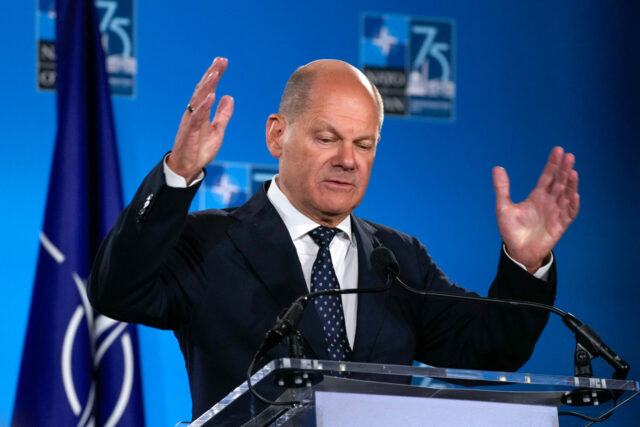In a surprising move, Germany plans to halve its military aid to Ukraine in 2025, despite growing concerns about potential shifts in U.S. foreign policy. This decision comes as Donald Trump’s possible return to the White House casts a shadow over future support for Kyiv.
Aid to Ukraine will drop to 4 billion euros
According to a draft 2025 budget, German aid to Ukraine will drop from 8 billion euros in 2024 to 4 billion euros ($4.35 billion) in 2025. However, Germany remains optimistic about Ukraine’s military funding, expecting the G7’s $50 billion loan package from frozen Russian assets to cover most needs.
U.S. provides lump sum to Ukraine
Interestingly, Washington has pushed to “front load” these loans, providing Ukraine with a substantial lump sum. This strategy aims to protect Ukraine’s finances if Trump returns to power. European leaders have agreed, recognizing the need for financial security in an uncertain political climate.
Germany’s arms supplies depleted
Despite aid cuts to Ukraine, Germany plans to meet NATO’s 2% GDP defence spending target in 2025, allocating 75.3 billion euros. However, continuous arms supplies to Ukraine have depleted Germany’s already strained military stocks, including reducing its Patriot air defence systems from twelve to nine.
Budget challenges and future uncertainties
Germany’s coalition government faces struggles in meeting NATO spending targets due to self-imposed borrowing limits. While cutting aid to Ukraine, they’ll allocate 22.0 billion euros from a special fund for defense, plus 53.3 billion euros from the regular budget.
Looking ahead to 2028, when the special defense fund runs out, Germany faces a significant budget gap. The financial plan indicates a need for 80 billion euros for defense, with a 39 billion euro shortfall in the regular budget.
Opposition criticism
Ingo Gaedechens of the opposition CDU party criticizes the government’s approach, stating, “The 80 billion euros that have been put on display for 2028 simply do not exist. The coalition is openly admitting it.”
As Germany navigates these complex financial and political challenges, the future of its military support for Ukraine and its role in NATO remains uncertain. The coming years will be crucial in determining how Germany balances its international commitments with domestic financial constraints.
With inputs from Reuters
Traveller, bibliophile and wordsmith with a yen for international relations. A journalist and budding author of short fiction, life is a daily struggle to uncover the latest breaking story while attempting to be Hemingway in the self-same time. Focussed especially on Europe and West Asia, discussing Brexit, the Iran crisis and all matters related is a passion that endures to this day. Believes firmly that life without the written word is a life best not lived. That’s me, Ashwin Ahmad.





